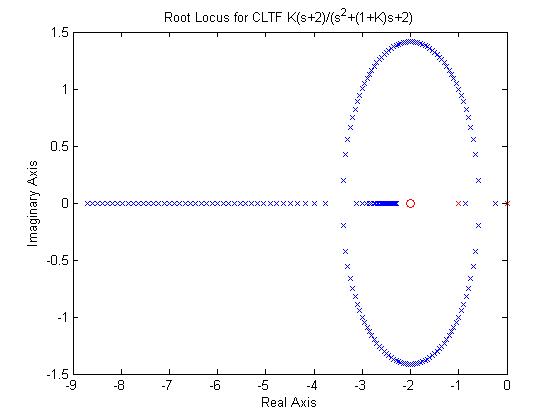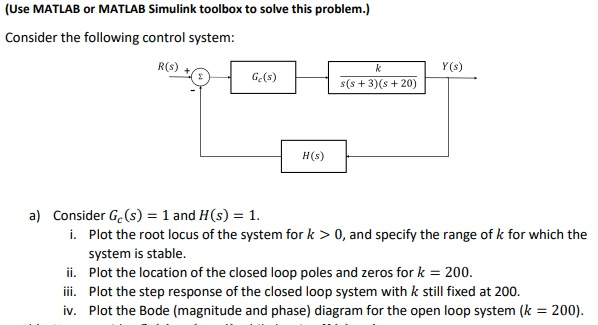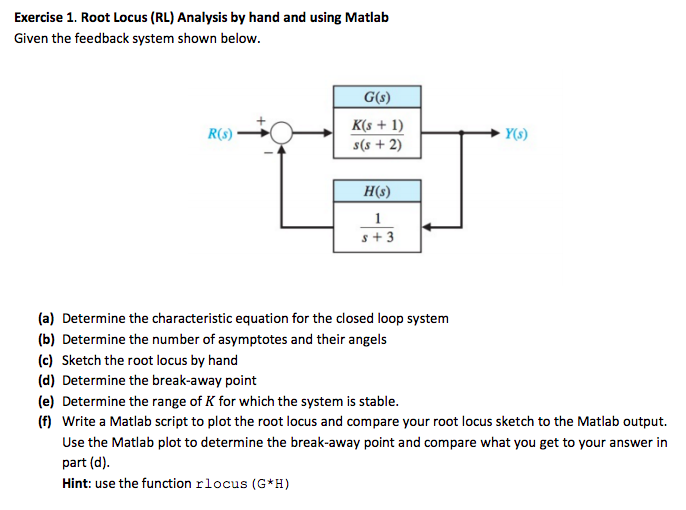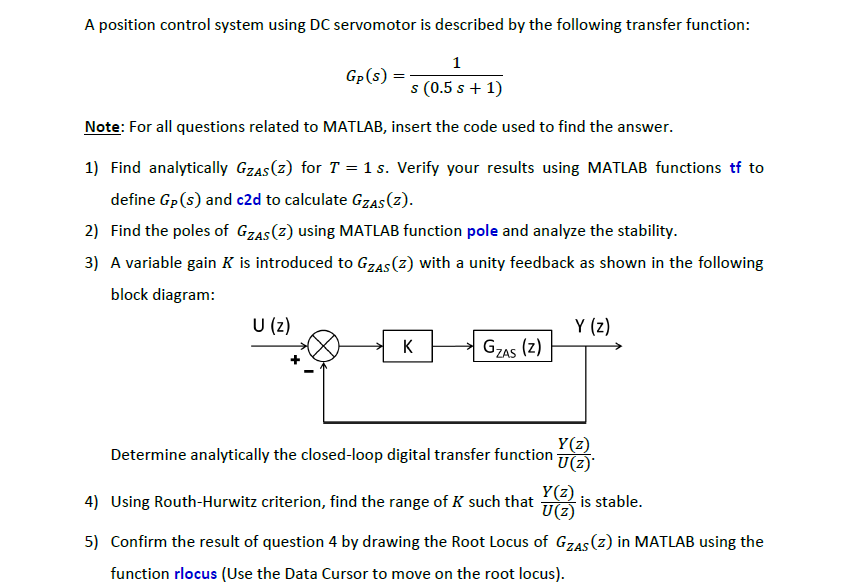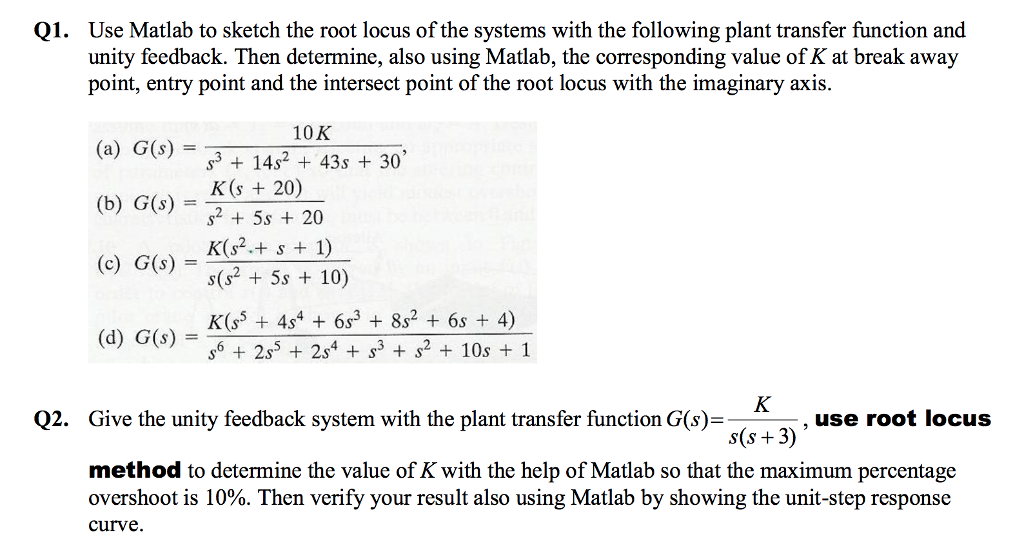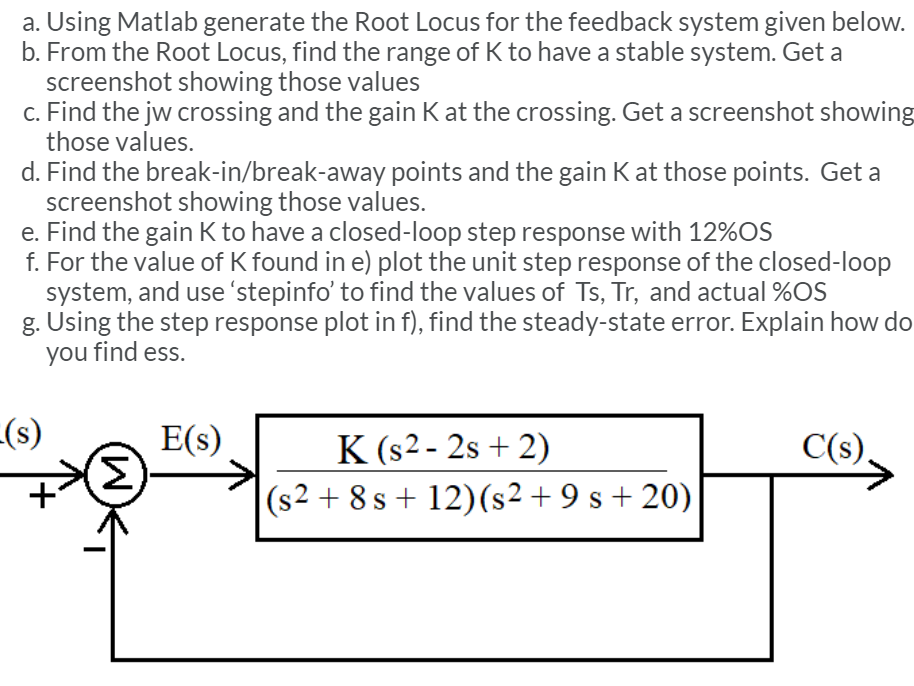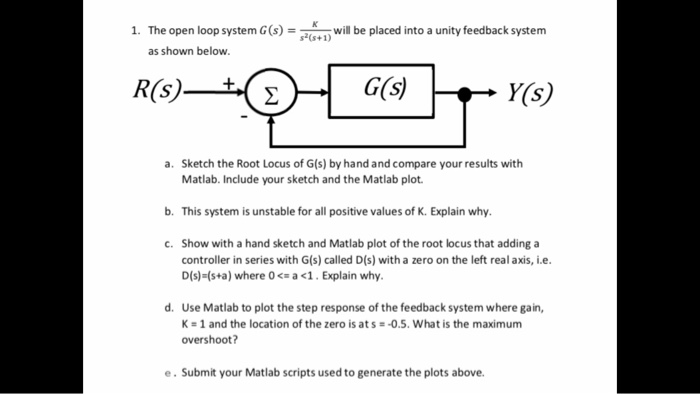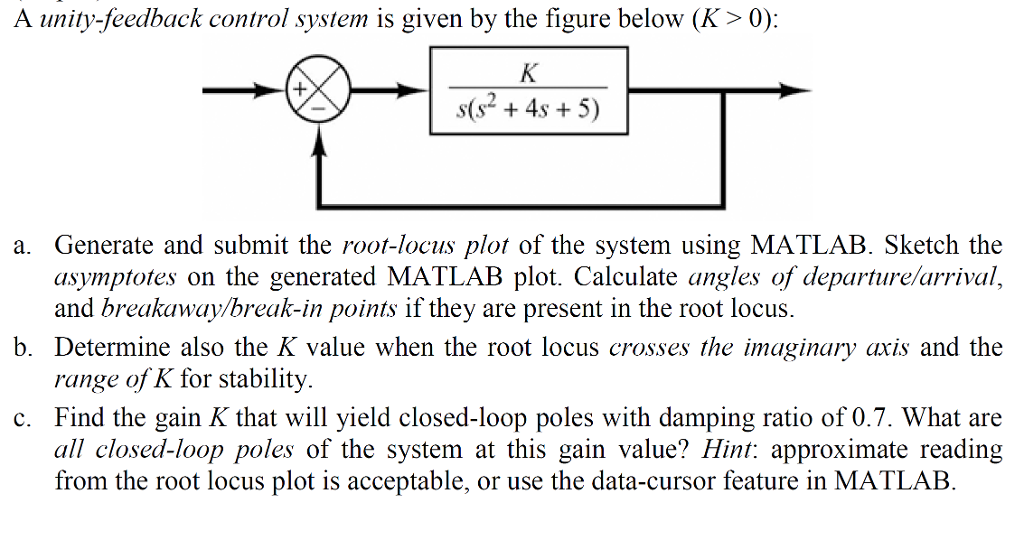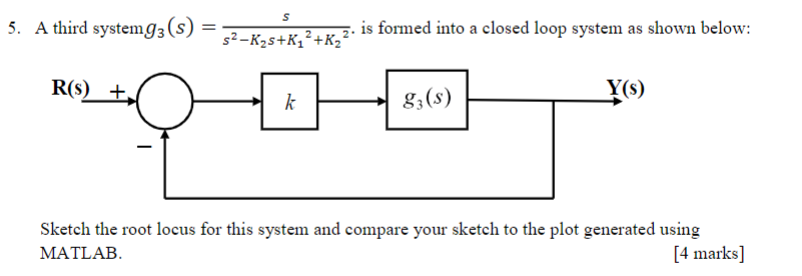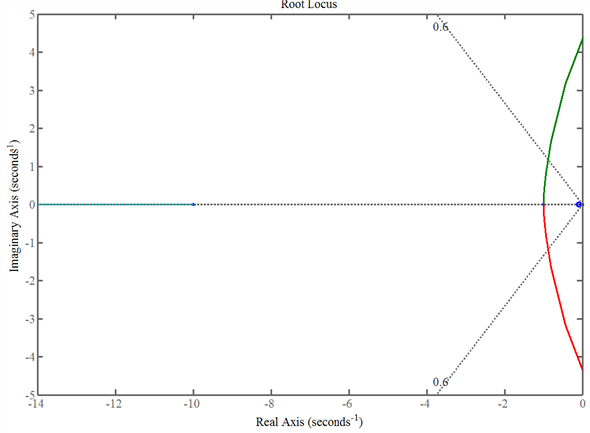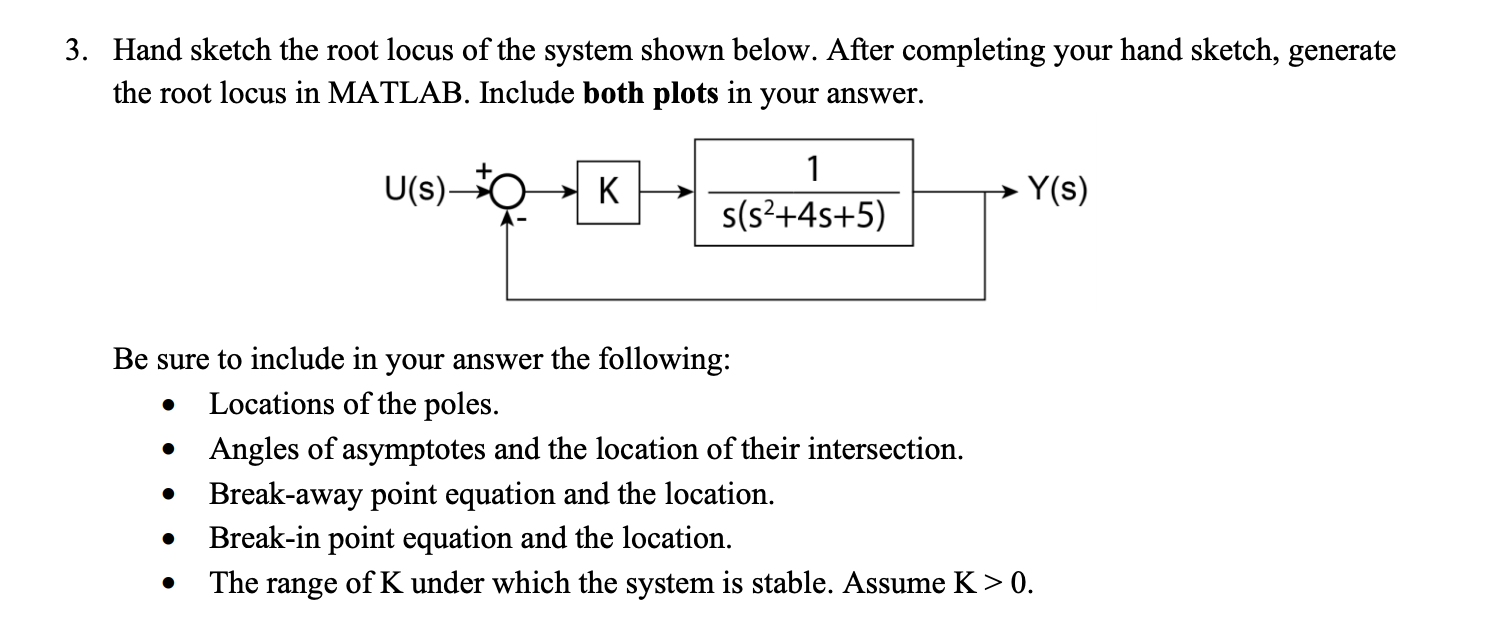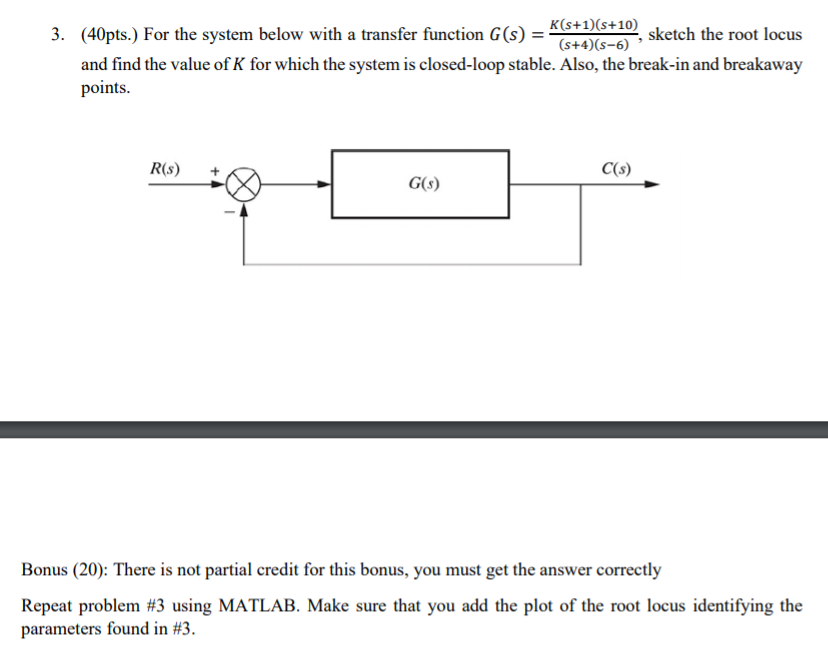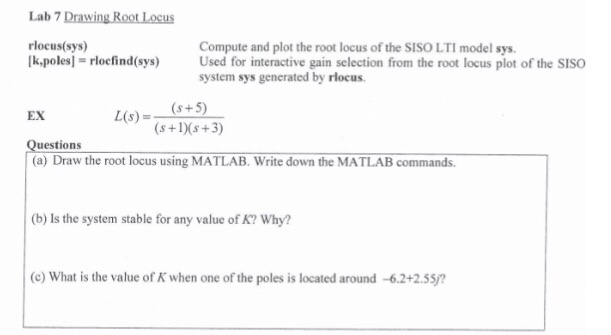Root locus method is a widely used graphical technique to analyze how the system roots vary with variation in particular parametric quantity generally a gain in a feedback control system.
Root locus matlab with k.
The locus can be sketched quickly to get a general idea of the changes in transient response generated by changes in gain.
I ve been using matlab to plot root loci for my control systems class but i ran into a problem with a recent assignment.
How to find the range of the gain k for a system is stable using the system s open loop root locus plot.
Using root locus rules gives the root locus plot in figure 6 1 which can be obtained using the matlab command rlocus.
The critical gain.
These are two interactive design tools of siso.
Specific points on the locus also can be found accurately to give quantitative design information.
Root locus is a process practiced as a stability measure in classical control which can find out system stability by plotting closed loop transfer function poles as a function of a gain parameter in the.
The root locus plot depicts the trajectories of closed loop poles when the feedback gain k varies from 0 to infinity rlocus adaptively selects a set of positive gains k to produce a smooth plot.
The root locus is a curve of the location of the poles of a transfer function as some parameter generally the gain k is varied.
The root locus lies entirely on the real axis between the open loop pole and the open loop zero.
The root locus of an open loop transfer function is a plot of the locations locus of all possible closed loop poles with some parameter often a proportional gain varied between 0 and the figure below shows a unity feedback architecture but the procedure is identical for any open loop transfer function even if some elements of the open loop transfer function are in.
Matlab control system toolbox contains two root locus design gui sisotooland rltool.
This particular problem asks me to plot the root locus of a system in which the transfer function has a variable gain in addition to numeric terms.
The root locus typically allows us to.
The root locus graphically displayed both transient response and stability information.
This video demonstrates how to obtain root locus of a given transfer function using matlab.
The roots of the characteristic equations are at s 1 and s 2 5 j5 8 i e the roots of the characteristic equation s 3 6s 2 45s 40 so we might expect the behavior of the systems to be similar since the pole at s 1 is closer to the origin we would expect it to dominate somewhat giving the system behavior similar to a first order system with a.
Examples of the root locus techniques.



